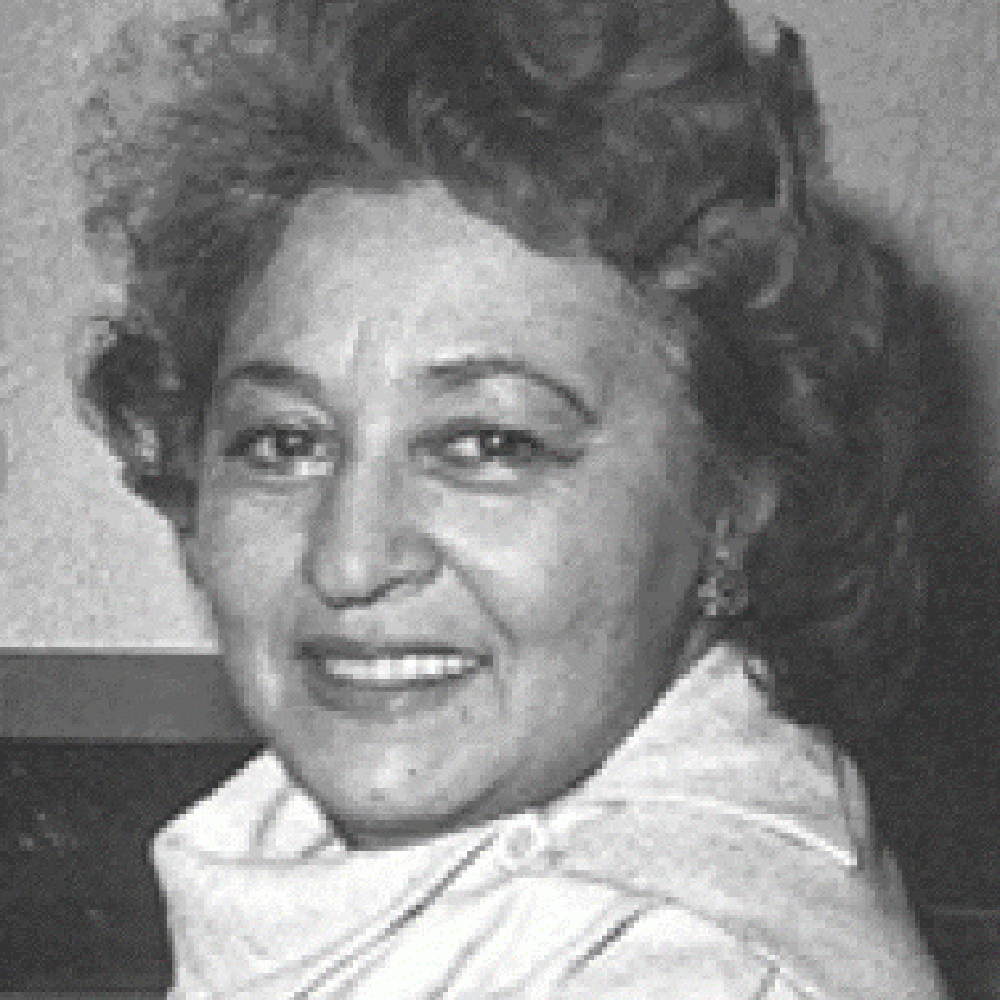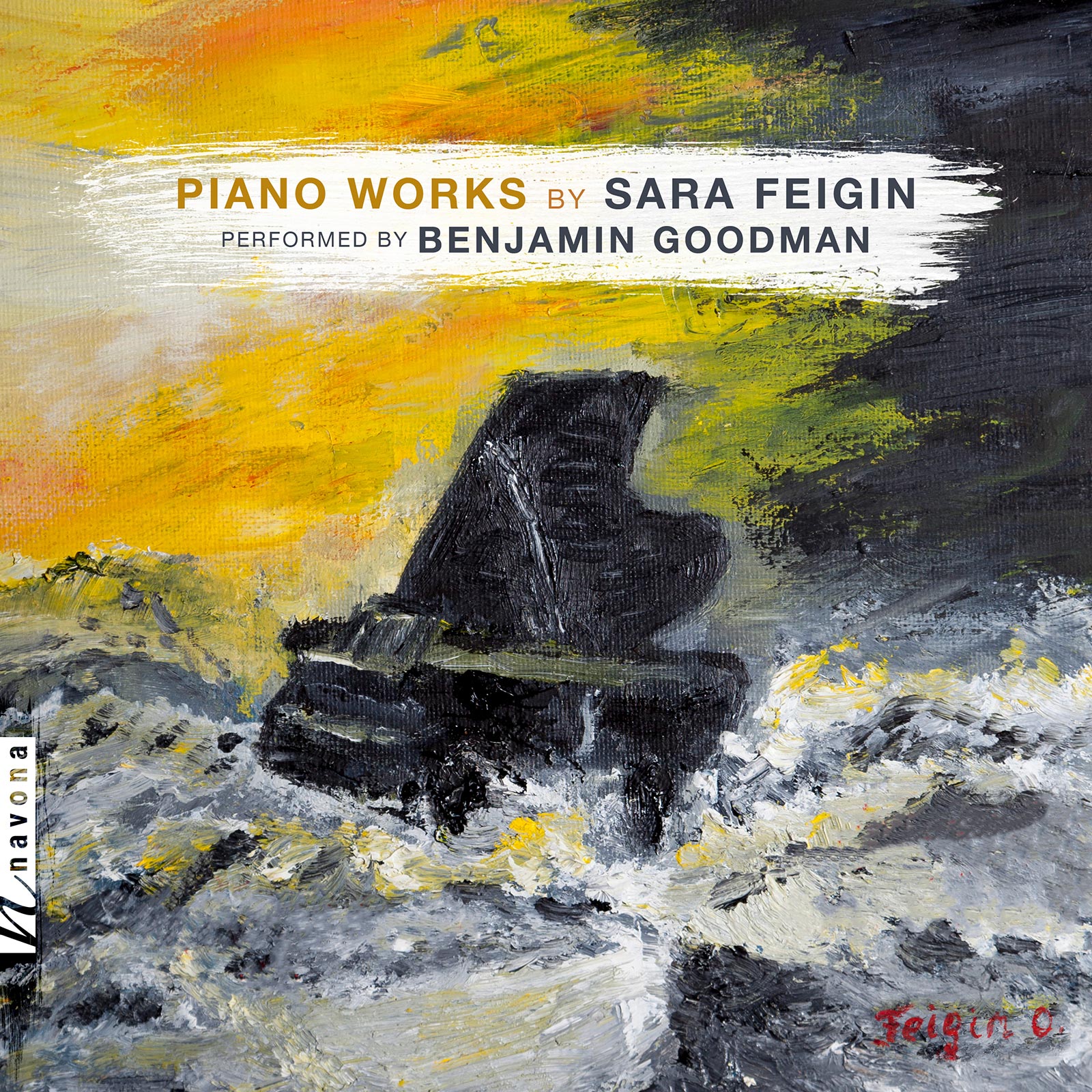
Sara Feigin, 1928 – 2011, was born in Dvinsk, Latvia. A precocious child, her musical talent became apparent in the early age of two, as she began to replicate melodies on the piano without instruction.
During WWII, Feigin, along with her mother and two siblings, evacuated to Uzbekistan where they lived from 1941 to 1945. While there, Feigin was asked to provide musical accompaniment to the silent films shown in her town due to her impressive talent for composition and improvisation – and all this at the tender age of fifteen. This began her lifelong journey as a prolific composer, performer and educator.
Upon her return to Latvia, Feigin pursued her piano performance and composition studies at the Riga Conservatory of Music. Despite being twice rejected due to her religious affiliation, she persevered and earned both her bachelor’s and master’s degrees by 1954. After graduation, she served as a composer and a musical consultant at the Choreographical Institute and Opera in Riga for thirteen years.
While working at the Riga Choreography School and the Latvian National Opera, Feigin was commissioned to write five ballets on Russian epics: The Golden Tree and My Happy Days (1956, debuting M. Baryshnikov and A. Godunov), and three shorter works, Exercise (1968), Poem (1968) and Storm (1969; after M. Gorky), as well as a children’s opera, The Cat’s House (1959) based on Samuil Marshak’s work.
In 1972, Feigin and her family settled in Israel and shortly after, she wrote the Sonata for Piano[1972], Toccata for Piano (1972) on a Latvian folk theme, and the hauntingly beautiful symphonic poem for mezzo-soprano and orchestra, Listen! (1973), set on a text by Emanuael Harusi.
Responding to the lack of job opportunities for immigrant composers and musicians, Feigin founded The Conservatory for Music in Holon in 1973 – the first music conservatory specifically employing immigrant teachers, serving as its director for over a decade.
A master of harmony, Feigin believed that even beginner learners could produce textures and rich harmonies with a little help from their fellow musicians. She conceived Let Us Play Together (1981/1982) – an innovative system for teaching children in groups playing four and six hands. She also pioneered the unique graded violin methodology series, The Young Violinist. A tireless educator, Feigin conducted workshops at music education institutions throughout Israel, and her teaching methods for young pianists and violinists continue to be used in music schools throughout the country.
Her passion for working with youth and instilling the love of music made her the perfect ambassador as she organized and conducted educational concerts from 1973 through 1990 for Jeunesses Musicales d’Israel, the local arm of Jeunesses Musicales International, the world’s largest organization dedicated to helping youth develop across boundaries through music.
Although Feigin’s music draws on traditional harmonies, it was the folk motives and people’s turbulent lives around the world that inspired and awakened her music. Feigin’s profound emotional responses to human atrocities and natural disasters were always expressed not only through her performances given to soldiers in every war, but through compositions written in their wakes or dedicated to the events. The Last Way, a third movement of the Sonata (1972) for piano, was dedicated to the victims of Babiy Yar Concentration Camp in Kiev and was inspired by the painting depiction of the final journey, “Led to the Slaughter – Babi Yar” by Joseph Kuzkovsky” ; Prayer (1987) for violin and piano was composed in a wake of March 1995 Beit Leed Massacre; Elegy (1995), a piano trio, was written a few hours after the assassination of Israel’s Prime minister Yitzhak Rabin; while the symphonic piece Tsunami, was composed in 2006, following the harrowing natural disaster in the Philippines. It was premiered by the Israel Symphony Orchestra, Rishon LeZion in 2006 and later performed by the Tokyo Philharmonic Orchestra – both under the conducting of Dan Ettinger.
Many compositions, such as Variations for Piano (1982), Four Scenes for piano (1992), and Rhapsody for Cello and Piano (1996), Fantasia for Clarinet and Piano (1996), Concerto for Clarinet and String Quartet (2001), Two Pieces for Piano (2003), including Storm and Prelude, along with other chamber, piano, and voice arrangements on folk themes, have been performed regularly on Israeli radio and in solo and chamber music concerts throughout Israel, Europe, Canada, Latvia, and the United States.
Feigin’s Reflections on a Nigun for Clarinet and Piano(1999), dedicated to the Israeli clarinetist Ytzhak Katsap, is a vibrant piece showcasing development for both instruments, and won an award at the 2002 International Clarinet Association Composition Competition at Miami University. Feigin described this piece as incorporating song, dance and prayer, they threemost important elements of Jewish music. Kaleidoscope for Symphony Orchestra (2002) was premiered by the Karlovi Vari Symphony Orchestra.
In 2011, Feigin passed away after a prolonged illness. She was known and is remembered as an charismatic and innovative musician, performer, composer, teacher, and a generous advocate and promoter for other musicians – young and old.
Feigin’s music is published principally by the Israel Music Institute.
Albums
Piano Works by Sara Feigin
Catalog Number: NV6147


